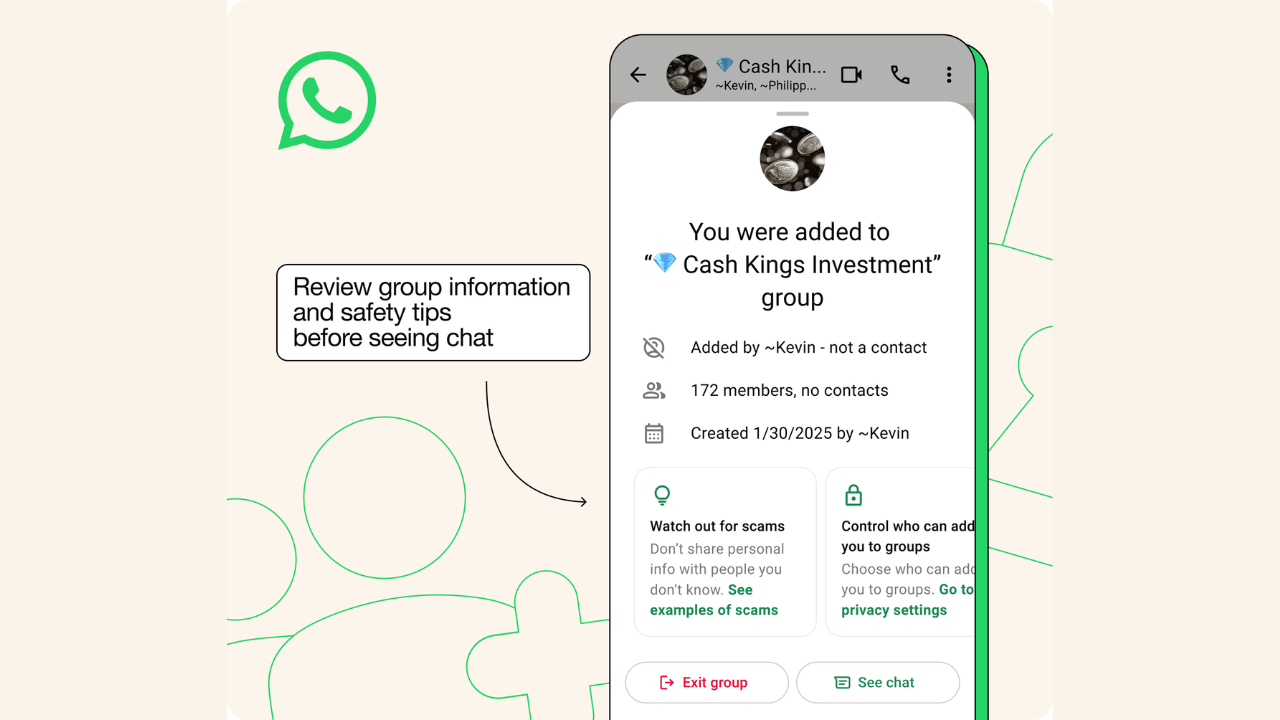WhatsApp has added a new layer of security to its application called Safety Overview to ensure users are not added to scam groups by strangers. The feature goes live when an unsaved person in the contact list of a user joins them in a WhatsApp group. It provides information regarding the group and user who has added the user, thus enabling the choice of whether to remain or not. The step is included in the broader initiative of the platform to fight scams and fraudulent group invitations.
The latest update has been given out at a time when Meta, parent company of WhatsApp, confirmed that it banned more than 6.8 lakh accounts linked to scam activities. Such accounts were flagged via WhatsApp internal systems and user reports. It is also collaborating with Meta and OpenAI to monitor and break down scam networks, such as a significant one in Cambodia.
How safety overview works
Users will now get a Safety Overview screen when a user is added to an unfamiliar group by a person not within their contact list. This screen will show information about the creator of the group, the number of members in the group, the date of creation, and the name of the person who added the user. Group notifications will be muted until the user confirms that they are willing to remain in the group.
In case the information appears known, users can go through the group chat. Otherwise, they are able to leave the group without seeing messages without any notice. Such a privacy-first policy is supposed to minimise the undesired exposure to scam content and misleading group activity.
New warnings in private chats
WhatsApp also tests a similar alert system on one-on-one conversations. The app might soon provide more background information about a person with whom the user has just started a conversation, even when that person is not in their contacts. This is to guard against fraudulent efforts via personal messages.
WhatsApp was involved in a recent coordinated effort in which it assisted authorities in targeting a scam centre in Cambodia where it is stated that AI tools such as ChatGPT were used to perpetrate fraudulent activities. These were false payments, cryptocurrency fraud, and a fake rent-a-scooter investment scheme. The firm keeps investing in tools and alliances to prevent such activities before they can be accessed by users.
